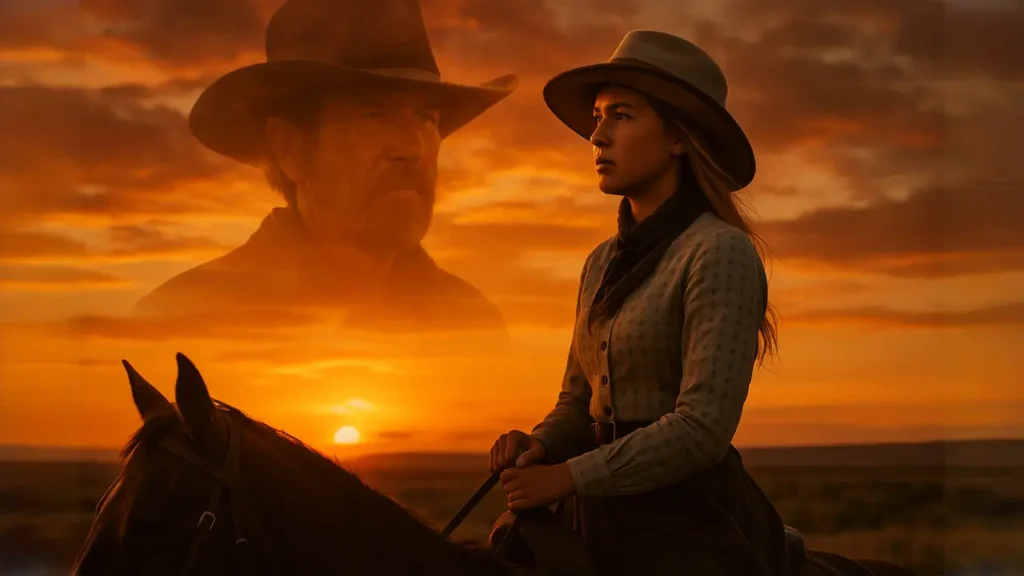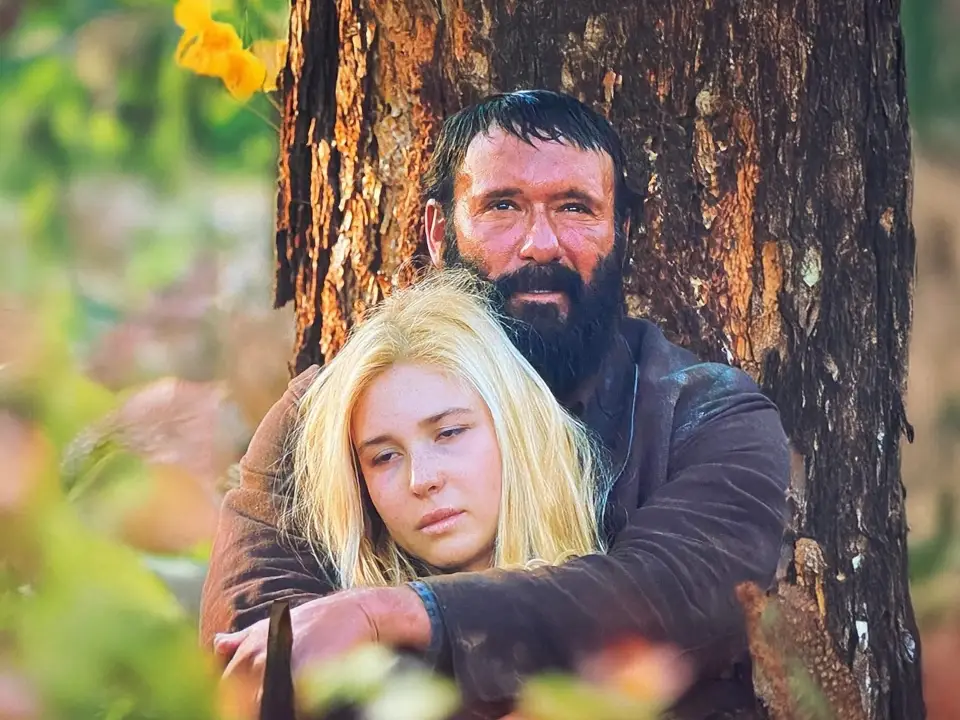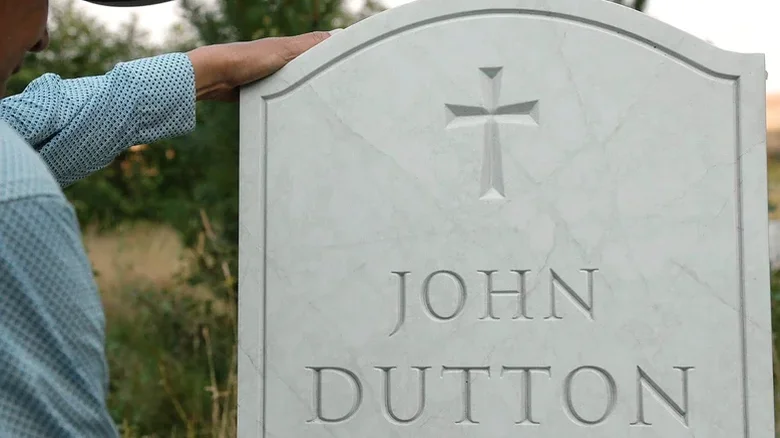Elsa Dutton’s Death in 1883 Explained—the Prophecy That Haunted Yellowstone

Why did Elsa Dutton die in 1883?
Elsa Dutton dies in 1883 after being mortally wounded in an attack, a moment that forces the Dutton family to settle in Montana—setting the stage for the entire Yellowstone saga. Her death anchors the family history and fulfills a prophecy important to the series finale.
A Love Letter to the American Frontier—and a Family’s Sacrifice
When 1883 debuted in 2021, fans of Yellowstone were thrust into the origins of the Dutton dynasty, a saga of grit, greed, and generational trauma. Yet at its heart was Elsa Dutton (Isabel May), a character whose fiery spirit and untimely death became the emotional and narrative linchpin of the entire franchise. Her journey wasn’t merely about westward expansion; it was a requiem for the cost of empire-building in the American West.
“We’d have never stopped here if not for her.”
—James Dutton, 1883
Elsa’s Death Wasn’t Just Tragic—It Was Necessary
Elsa’s killing by Lakota warriors in 1883's penultimate episode seems, on the surface, like a grim nod to the Oregon Trail’s lethal reality. But her death was no accident; it was a narrative fulcrum. By mortally wounding Elsa, the plains of Montana became the Duttons’ reluctant sanctuary. Her parents, James and Margaret, chose to bury her in what would become Yellowstone’s hallowed ground, rejecting the path westward.
Elsa's tearful death in her father's arms wasn't just a sad scene; it rooted their family to this land and triggered a seven-generation prophecy of the native people's return, as Spotted Eagle warned James. A deal was struck, and the seeds of Yellowstone’s ending were sown.
The Ghost Who Watched Over Yellowstone
Even in death, Elsa refused to fade. Her role evolved into something mythic: 1923’s narrator, a spectral guide bridging past and present. Returning decades after her demise, she chronicled her brothers’ struggles and, later, lent her voice to Yellowstone’s series finale, “Life Is a Promise.”
“Nowhere was that promise written. It faded with my father’s death but somehow lived in the spirit of this place.”
From beyond the veil, Elsa connected the dots between James Dutton’s bargain and John Dutton III’s (Kevin Costner) final act—the sale of Yellowstone to the Broken Rock Indian Reservation. Without her death, there would be no land to fight over, no prophecy fulfilled, and no poetic closure to Sheridan’s sprawling saga.
Why the Dutton Dynasty Needed Its First Martyr

Elsa’s story wasn’t just about frontier tragedy; it was a parable about legacy. Her love for Comanche warrior Sam (Martin Sensmeier) and choice to honor her parents’ journey over joining his fight highlighted an important theme: sacrifice for family. She showed the tension between personal desire and collective duty—a tension that defines the Duttons to this day.
Her death also served a darker purpose: it made the Western idea of "manifest destiny" seem more acceptable. By showing the Duttons' violent takeover of Yellowstone without making it seem heroic, Sheridan highlighted that their claim was built on bloodshed. The land was never really theirs—and Elsa’s ghost, forever watching, reminds us of this harsh reality.
The Full Circle Moment No One Saw Coming

When Kayce Dutton (Luke Grimes) and Monica (Kelsey Asbille) stand at the family graveyard in Yellowstone’s finale, Elsa’s voice echoes: “My father was told they would come for this land… ” The sale to Chief Rainwater (Gil Birmingham) wasn’t just a plot twist—it was destiny fulfilled.
The story of Elsa's death, the Crow prophecy, and the modern handover is a perfect circle. The finale's emotion relies heavily on her. Her sacrifice was essential, a structural pillar of the Yellowstone narrative.
A Legacy Written in Blood and Dust
Elsa Dutton’s story reflects the American West itself—wild, beautiful, and stained with loss. By grounding Yellowstone’s operatic conclusion in her humanity, Taylor Sheridan ensured that her legacy would outlive the screen.
As viewers grapple with the Duttons’ future, one truth remains: Yellowstone was never just about land. It was about promises kept—and the ghosts who never let us forget them.
What did you make of Elsa’s role in the Yellowstone universe? Share your thoughts in the comments below.

Leave a Reply